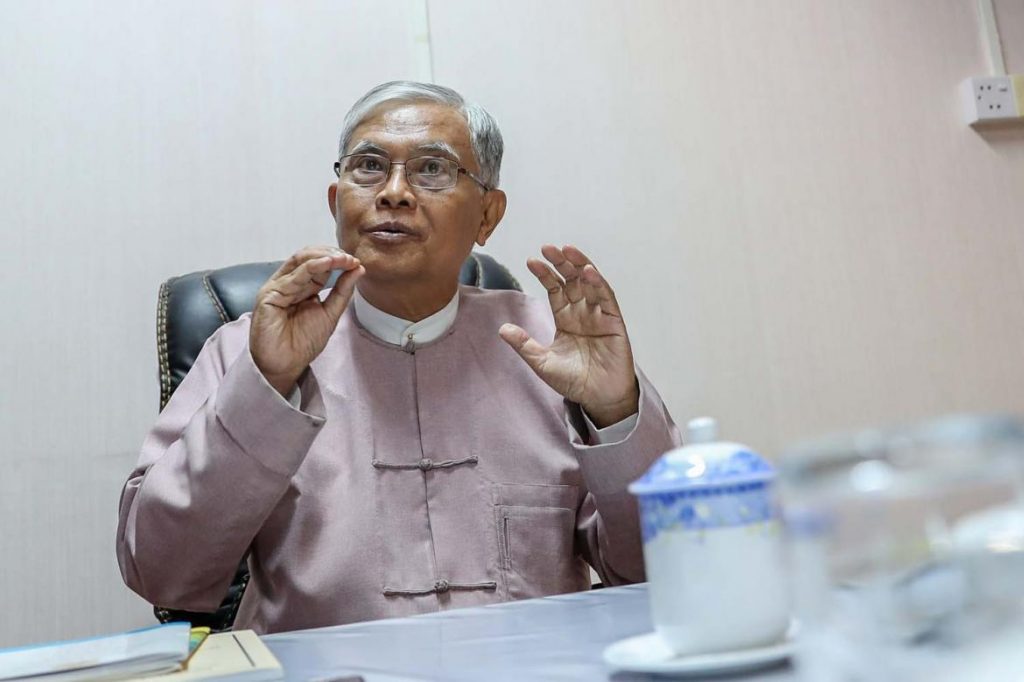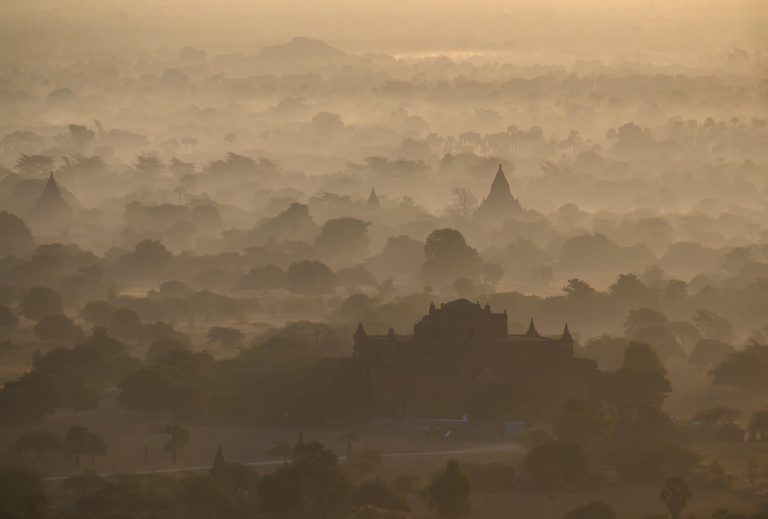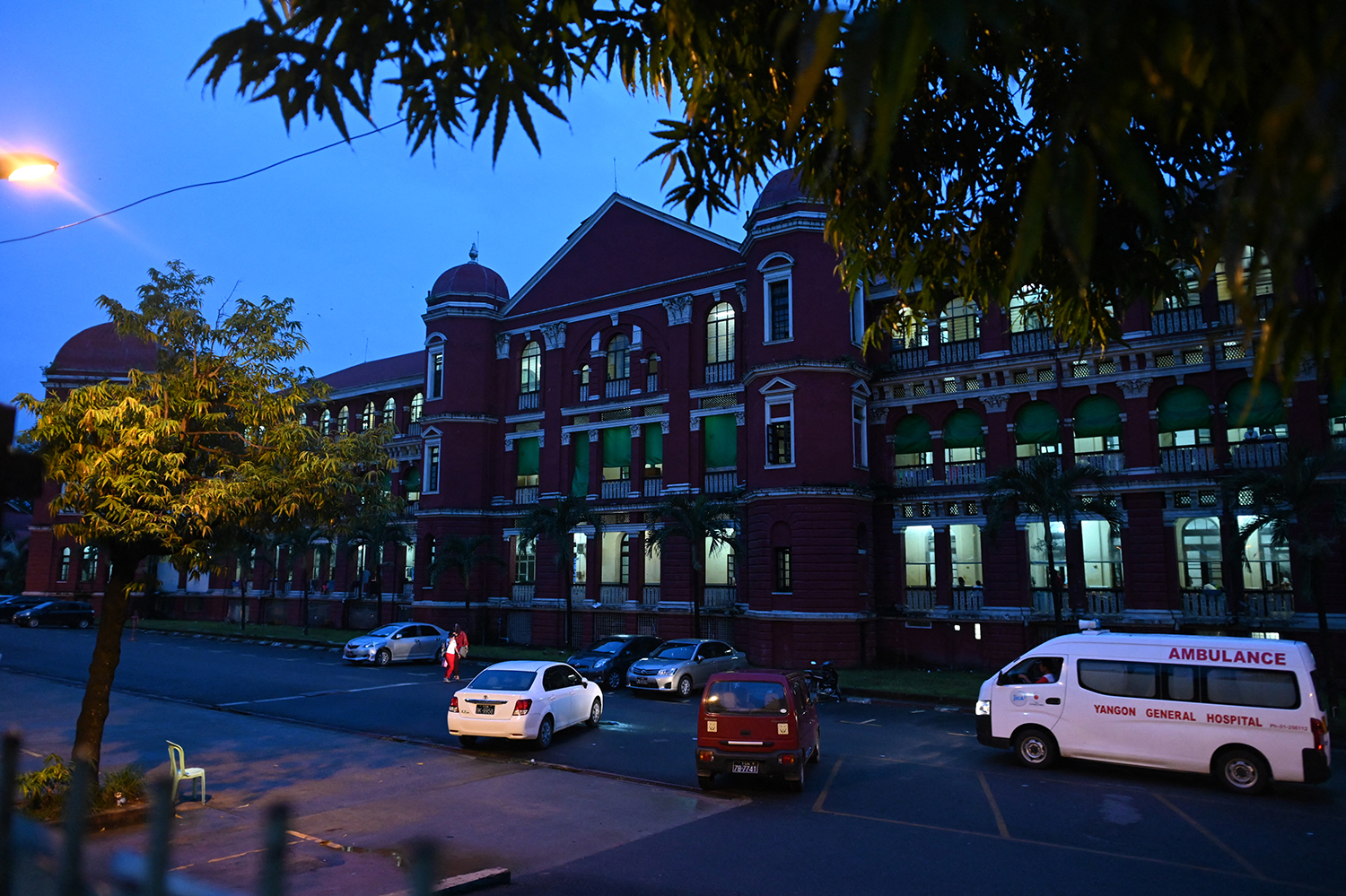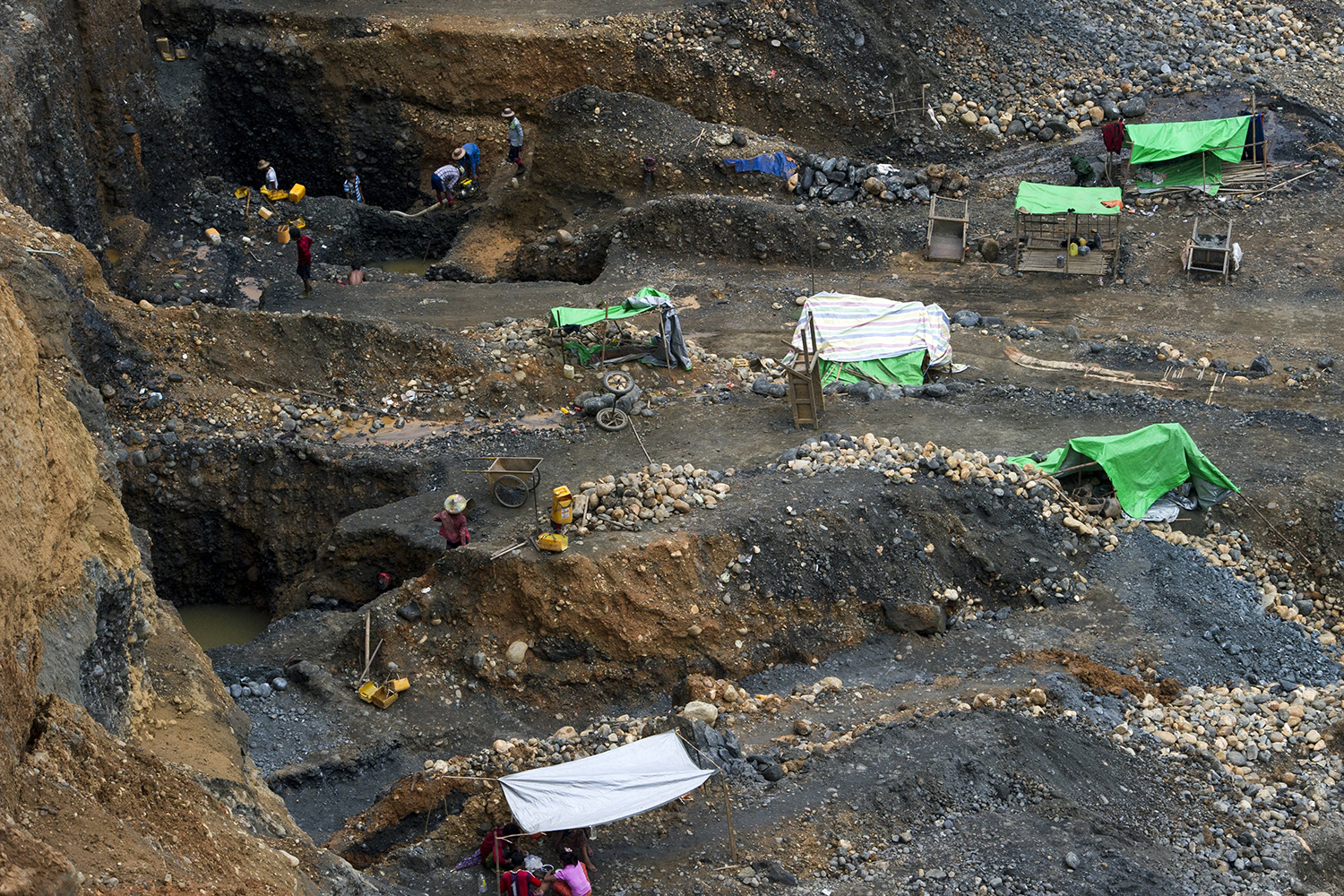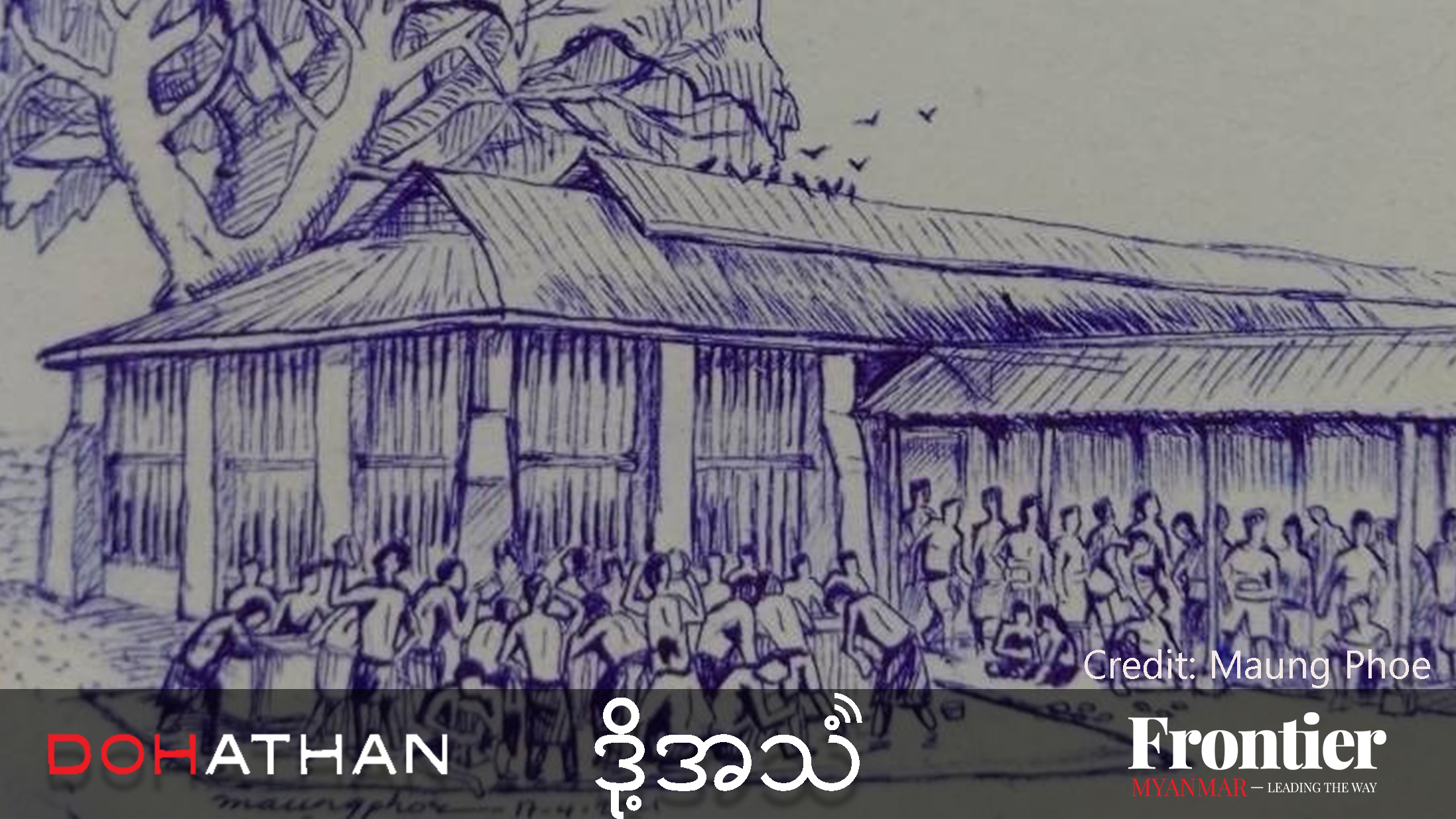Anti-Corruption Commission chair U Aung Kyi speaks to Frontier about catching “big fish” and the difficulty of persuading the powerful that “Myanmar needs to change”.
By YE MON | FRONTIER
SINCE being re-established by former President U Htin Kyaw in November 2017, the Anti-Corruption Commission has investigated and taken legal action against senior members of government, the judiciary and the civil service.
While it has won some plaudits for its actions, the commission has also been criticised, with some observers alleging that it is not independent and under the influence of the president and State Counsellor Daw Aung San Suu Kyi.
In an interview with Frontier reporter Ye Mon, commission chair U Aung Kyi defends the independence of the body and lays out the challenges of cleaning up public life in Myanmar.
You said shortly after becoming Anti-Corruption Commission chief that you wanted to catch “big fish” during your tenure, but also that it wouldn’t be possible until the Anti-Corruption Law is amended. The law changed last year, so what will you do if the public brings a complaint to you about a “big fish”?
The latest amendment to the law was enacted on June 21, 2018. Before that the law related only to bribery. This created major limitations: you could only take action against those who committed bribery if you caught them red-handed or you had very strong evidence. Before the law was amended, no one informed us about people taking or accepting bribes, so the commission found it hard to take any action.
Support more independent journalism like this. Sign up to be a Frontier member.
But the amendment introduces the concept of damaging or hurting government finances [for personal gain]. That means we can examine someone if there is a loss of public money due to them following the incorrect procedures. The amended law is more relevant to senior government officials who are authorised to spend public money. They are big fish. Officials responsible for spending public money have become more careful because the amended law includes damaging or losing public finances.
What other important changes were made to the law?
The main thing is that we can open an investigation based on news or information that is shared among the public. We have to decide whether the information justifies an investigation. Just because something is spreading on Facebook, it doesn’t mean we should investigate. There needs to be a strong suspicion of corruption, and some reasonably solid evidence.
For example, if people are talking about a particular project that has not started yet and alleging that there was corruption involved, we can’t just investigate it. We have no evidence to support the allegation.
One case concerned the training that took place in some departments. There were allegations of corruption regarding the training and there were lots of risks for the country. But it happened under the old version of the law [so we couldn’t take action]. If they had held a second training [now the amended law is in effect] it would have been a violation of the law. The government had already cancelled the training so we weren’t able to take action against them.
Under the old law, it was also difficult to take action against people who gave a bribe. Now the commission can take action against both sides.
The training in the departments – are you referring to the case of the Union Civil Service Board cooperating with foreign universities that were not credible?
Yes. But it is just an example. I don’t want to mention it by name – it’s not good for them.
I’ve never seen something like that happen in the past, in previous governments. It shows that the people have degenerated. It’s now seen as normal to give a present [to gain favours]. The main thing is for people to have good morals, but it’s not easy to teach. We are starting the education process in schools. At the primary level, the teachers have to teach them to tell the truth. For middle schools, the students will study rectitude. Good morals will follow if children are taught at school.
Probably the highest-profile case you have taken on is that of the Tanintharyi Region chief minister. What difficulties or obstructions did you face while investigating that case?
We didn’t experience any obstructions but there are some difficulties that accompany the nature of our work. There were lots of different complaints from different sources. So initially it was difficult to investigate and find solid evidence for a single case.
We had to examine witnesses. In Myanmar, generally people don’t want to testify because they don’t want to have to go to court very often. But in this case, there were so many people who wanted to testify – we interviewed over 90 witnesses.
In that case, some of the allegations related to incidents before the law was amended and some after, so how did you handle it in that respect?
In this case, both the old and new versions of the law were applied. Under the old law, a case was filed related to accepting bribes, and under the new law a case was file in relation to a tender.
In another case, it was reported that the commission did not take action against the permanent secretary of the Ministry of Hotels and Tourism, despite an investigation finding that he had not followed correct procedures when importing a car. What’s the difference between this and the chief minister’s case?
Because of when this incident happened, we could only consider filing a case under the old version of the law for bribery. The person in question couldn’t explain clearly about the details of the case and there were no witnesses. The person who said they gave the bribe did not have evidence, so it was very difficult. If we could investigate under the amended law, it would have been easier [to prosecute].
There have been reports that complaints have been submitted against members of the Yangon Region government, including chief minister U Phyo Min Thein, in relation to the Yangon new city project. Is that correct?
Although these reports have come up, if my memory serves me correctly there has not been any complaint about him.
The nature of the commission is that it inspects only after a possible crime has been committed. If it is true that someone committed a crime, we will take action against them. In this case, the project has not been launched yet so we have no right to investigate it. If the project has been submitted to the hluttaw [legislature] and the hluttaw has allowed it, after which we can say that the project is being implemented, and then some corruption or crime is committed, the commission will take action. Before the launch of a project we can only educate or try to prevent [corruption]. We can’t inspect the problems that have arisen before the launch.
Another amendment to the law last year reduced the punishment for those found to have provided false information or a false complaint to the commission. Do you actually intend to use this section against complainants?
If possible, we don’t want to take action. Those who file a complaint to us are taking a risk. We are worried that if we take action against people who file complaints, the number of complaints may decrease. If that happens, we won’t be able to uncover bribery and corruption.
The commission has no reason to take action against those who honestly filed an incorrect complaint. But we take action against those who file complaints dishonestly and for their own interests.
In one recent case, we had no choice but to take action against a person who filed a complaint after fabricating a story and dishonestly stating incorrect information to journalists.
Our commission’s duty is to work in the public interest, not the personal interest. So if someone files a complaint with the intention of damaging someone else, we will take action against them. That said, I hope we don’t see another case like this.
Have you received any complaints related to the three ministries that are run by ministers directly appointed by the commander-in-chief?
Because the Ministry of Defence is related to in-service military staff, there are limitations under the constitution. All three ministers are serving military officers, so we could not take action against any of them. But the commission can taken action against cases involving the civilian staff from the other two ministries. I can’t say whether we have received any complaints – we have to keep it secret. If not, it can harm the dignity and rights of those who are the subject of an unsubstantiated complaint.
Can the commission take action against members of parliaments?
Yes, we can take action against MPs if they break the law. But they are in a different position from officials in government departments. MPs do not have so much authority so it is rare that they are involved in corruption.
Last year the commission announced that it would set up corruption prevention units within the ministries. Have you been happy with these units so far? There has been some criticism of the lack of external oversight on the activities of these units.
Fourteen corruption prevention units were established as a pilot project … now the number has risen to 28. They are led by, at a minimum, a deputy director general. We rely on administrative departments to make the units work.
A corruption prevention unit must reveal the corruption problems inside its ministry. If a problem can be revealed, it must resolve it within its authority – for example, through the Civil Servants Law. Under that law, [state and regional] chief ministers have the authority to take administrative action.
It would be better if third parties could be included in the CPUs but we need more time to include civil society organisations, one reason being that most CSOs are not experienced in anti-corruption matters. If existing CSOs were included, they would not be a good fit for the job and we are worried that the situation would become even more confused.
But the parliament can still act as a check and balance on the activities of the corruption prevention units. We cannot say the pilot project will not be successful just because third parties are not included in the units.
Compared to the previous incarnation of the commission, there have been many more cases during your term. Have you or your members faced any threats in relation to these cases?
Yes, when we started our term we received some threats by letter. That has stopped and we are’nt afraid of them. We are doing our duty for the country with benevolence. We will never take a step backward.
Do the president or state counsellor have any influence over your work, as some people claim?
The commission is independent. Some people think that the state counsellor influences the commission. She is not that kind of person – she just wants us to do our duty independently … I haven’t met with her at all this year. We have to report to the president in line with the law if we need to open a case.
You were a senior official in the military regime and information minister in the previous government. Which position has been the most fulfilling for you personally?
The [ACC] chairman position is the most suitable for me. As information minister, I tried to change the media industry and [change state media into] public service media with benevolence. The government agreed to the public service media idea because I urged them to accept it, but people from the media industry didn’t accept it and the parliament also didn’t agree. I lost and I retired because of it. I made lots of sacrifices but I don’t mind. I tried my best but was unsuccessful and I have to take responsibility for that.
I really value the commission’s work and think it’s more meaningful than what I’ve done in the past … In my view, the mindset of the people of our country has been damaged since a long time ago. We need to improve their morals. We will walk on the way of righteousness … I will take action decisively against whoever and I won’t give special favours to anyone, it doesn’t matter how close I am to them … We don’t care about the repercussions that might come from that.
I worked as a principal in the military and taught students to be good. Under the military regime, I helped resolve forced labour issues with the United Nations. It had a good impact, but it was just a small thing. Now I’m working for the whole country.
Within two years you will hit your position’s mandatory retirement age of 75. What do you want to tell the people and future members of the commission?
Future members and also current members have to agree that Myanmar needs to change. Everyone should support this aim and work actively while we still have a chance. But what I see now is that not everyone is enthusiastic about creating change.
If [people] get positions in the administration, they just stay in their comfort zone. But they can’t just stay there; they need to go out and challenge themselves for the development of the country.
Do you plan to move on to a career in politics?
I will never do politics. I don’t want to have any relationship with politics after I retire.


